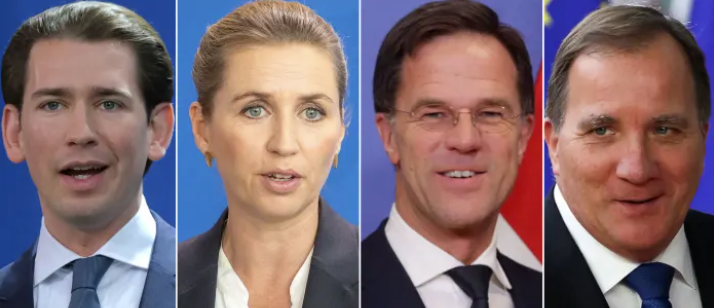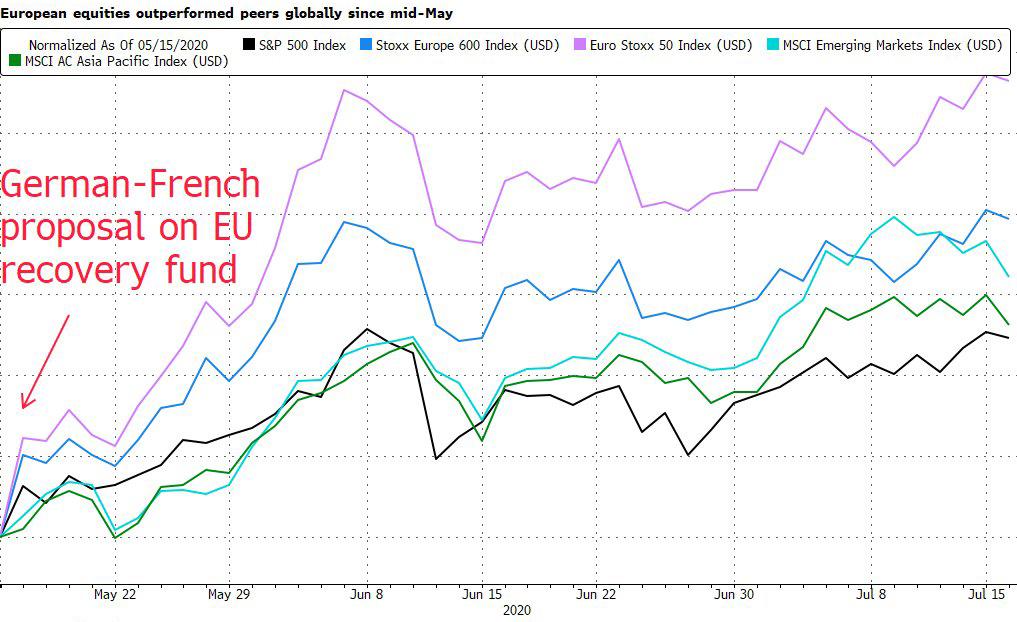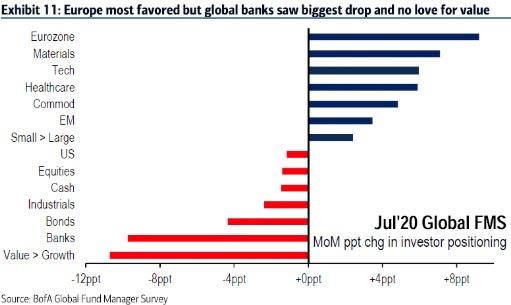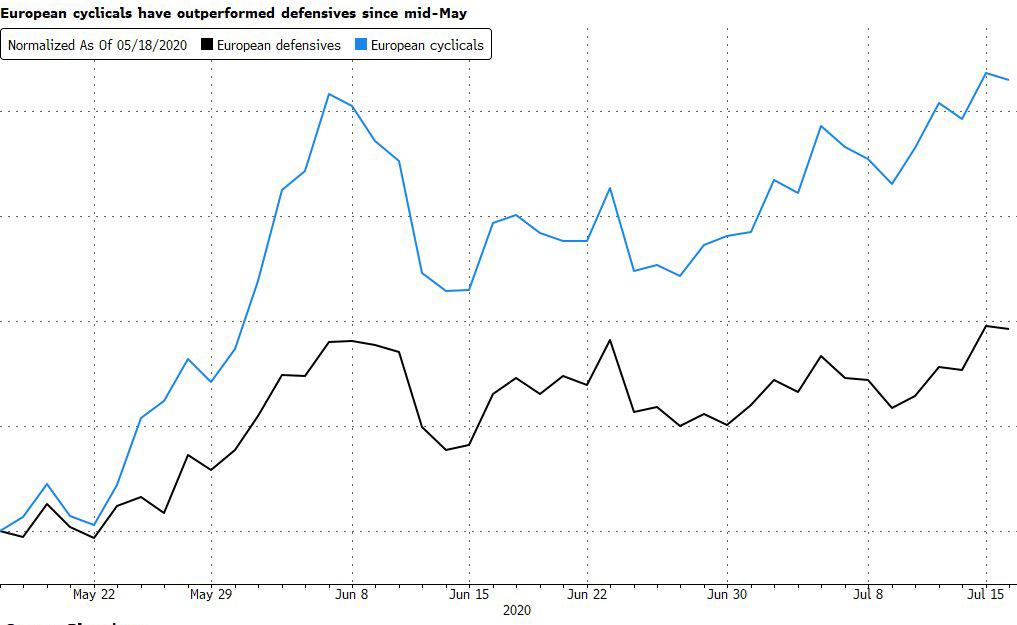Market’s Euphoria Faces Test Of EU Negotiations
Tyler Durden
Fri, 07/17/2020 – 12:20
Authored by Michael Msika, Bloomberg macro commentator
European stocks are benefiting from renewed investor popularity, largely on hopes that the European Union’s proposed 750 billion-euro ($854 billion) recovery fund will be agreed. As the bloc’s leaders try to thrash out a deal over the next two and a bit days, any serious clash could put the market rally at risk.
The Stoxx Europe 600 Index has advanced about 9%, while the euro-area focused Euro Stoxx 50 benchmark is up 16% since the French-German agreement on the economic stimulus proposal was made public on May 18. The plan has been cited as one of the main reasons for the preference for European equities over U.S. or global shares by investors, as well as strategists at Barclays Plc, Morgan Stanley and Goldman Sachs Group Inc.
The spread between Italian and German benchmark bond yields – a measure of risk in Europe – narrowed about 50 basis points over the same period.
Fund managers are getting upbeat, with allocations to euro-area stocks jumping nine percentage points to a net 16% overweight, according to the Bank of America Corp.’s July Fund Manager Survey. The EU is now the most-favored region, because surveyed investors “bought Europe on fiscal stimulus,” wrote strategist Michael Hartnett last week.
Since mid-May, the European rally has been driven mostly by economically sensitive shares, such as technology, financials, chemicals and industrials, amid hopes that increased government spending would benefit those sectors.
“Given the recent outperformance of European cyclicals, there is some expectation that something will be agreed,” Bloomberg Intelligence strategist Laurent Douillet said by phone. “So the meeting of European leaders over the weekend is very important.”
The rally in the euro and Europe’s riskier government bonds also started to gain traction in May and is contingent on an agreement between EU leaders over the fund. While the European Central Bank’s bond-buying programs have backstopped the region’s debt, President Christine Lagarde reiterated on Thursday that efforts to bolster economies are incomplete without a joint fiscal response and that it’s assumed that a deal will be approved.
But Dutch Prime Minister Mark Rutte, who’s been leading the criticism of the plan on the table, this week said he’s “somber” about the prospects for this weekend while Germany’s Angela Merkel and French President Emmanuel Macron, who helped trigger the rally with their May proposal, are talking about a deal by the end of the month rather than the start of next week.
The 27 leaders all need to be in agreement for the plan to move ahead and Austria, Denmark and Sweden have also voiced some of the concerns articulated by Rutte. Consequently, not all investors expect rapid progress.

Croatian Prime Minister Andrej Plenkovic said the group is aware of the weight of expectations as they head into the talks. “For the markets, for the general image of the European Union, for the political message toward our member states, toward our citizens, it would be fantastic if we can reach agreement,” he told reporters on Thursday evening in Brussels.
“The political willingness of the Germany-France axis to get the package in place is very big,” Markus Steinbeis, managing partner at Steinbeis & Haecker Asset Management, said by phone. “Capital markets know this, but are also used to the fact that things move slowly in Brussels and a solution is often reached at the last minute. Little progress on the weekend should cause a short-term disappointment, but hopes will remain.”
via ZeroHedge News https://ift.tt/3985Jx6 Tyler Durden


